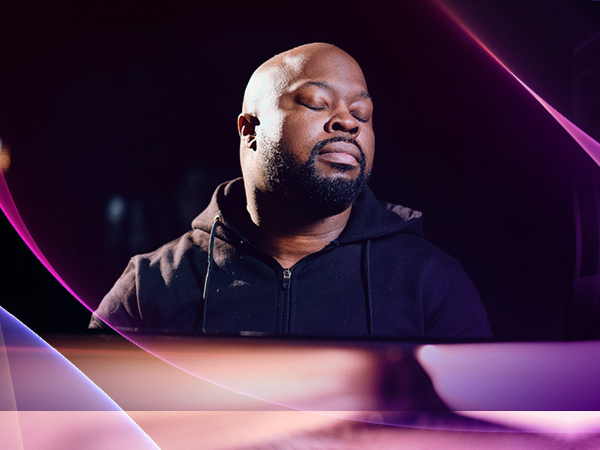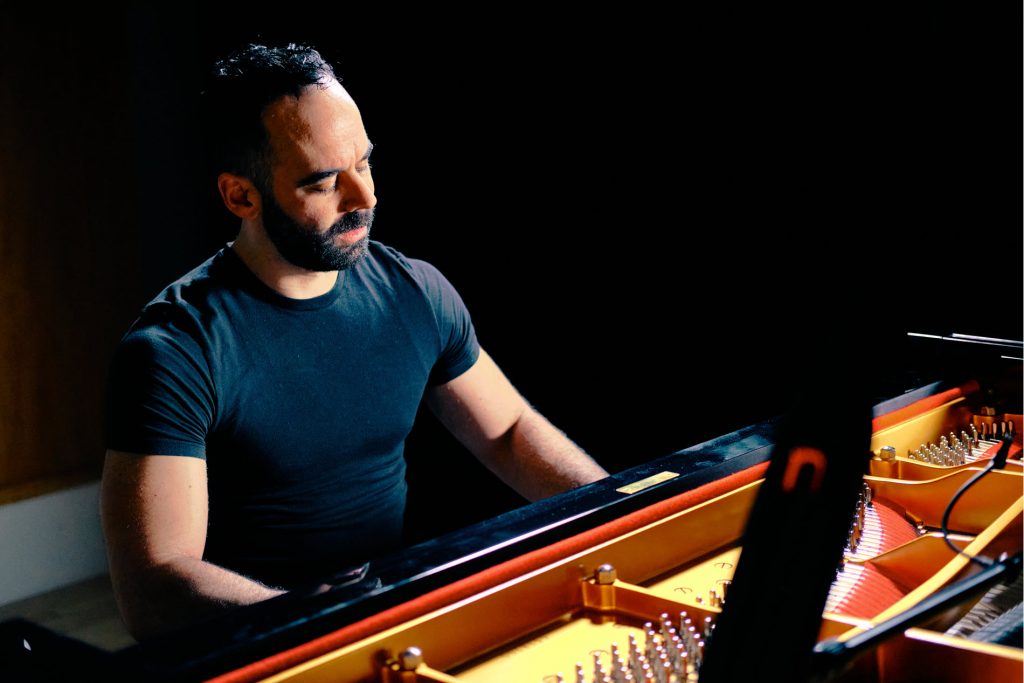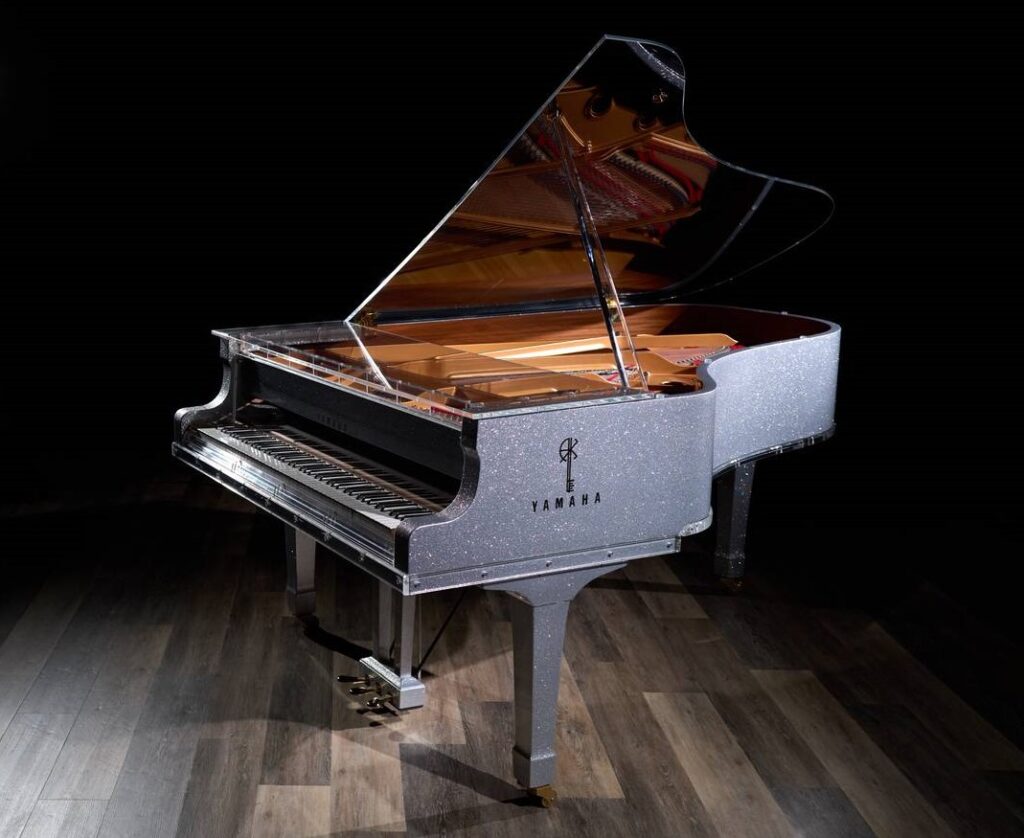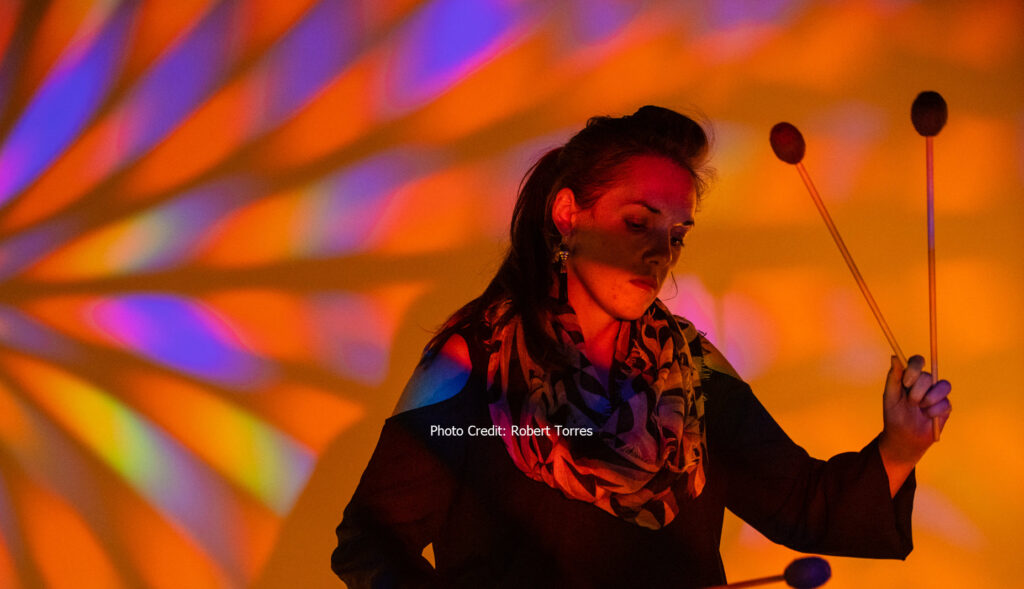Tagged Under:
Matthew Whitaker Makes Musical Direction Moves
How one young artist got his start in live theater.
22 year-old Matthew Whitaker is the very definition of a one-time child musical prodigy. His grandfather gave him a Yamaha keyboard when he was just three years old — and soon, he was off and running. “I taught myself nursery rhymes,” Whitaker, who was born blind, says. “I was just copying whatever I heard on the radio.”
His family quickly realized this wasn’t just a toddler making noise — this was an extraordinarily talented musician. Whitaker first attended New York City’s Filomen M. D’Agostino Greenberg (FMDG) Music School, an institution committed to helping people pursue their study of music while addressing the challenges posed by vision loss, where he learned to play piano, later becoming adept at both drums and the organ. At 10, he performed at the Apollo Theater, opening a show that celebrated Stevie Wonder’s induction into the legendary venue’s Hall of Fame. At 15, he was named a Yamaha Artist — the youngest musician ever to join that storied group. In 2020, the long-running CBS television show 60 Minutes devoted an entire segment to him.
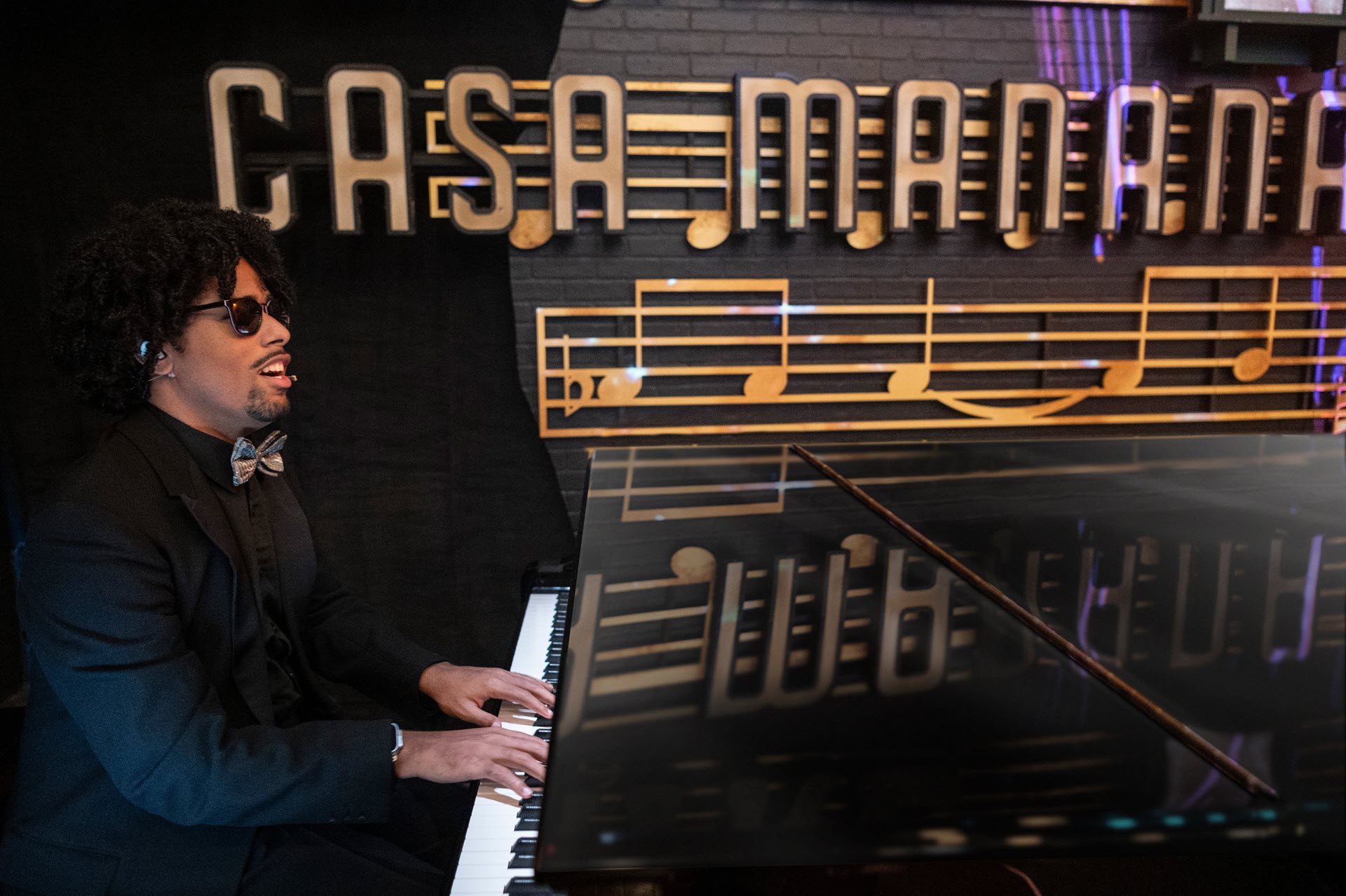
Despite all the accolades, humility seems to be second nature for Whitaker. “I always tell people that God blessed me with a gift,” he says. “And I’m always blessed and honored to share that gift with other people.”
Two Musicians from Two Different Eras
Some 85 years before Whitaker arrived on the scene, another child prodigy named Billy Strayhorn was born. By the time Strayhorn reached his teens, he was already composing sophisticated songs, writing for musicals and leading jazz combos. Most impressively, he began composing what many consider to be his masterpiece, “Lush Life,” when he was just 16 years old. That song, a preternaturally world-weary lament set to an almost mystical D-flat melody, has since become one of the American Songbook’s immortal standards, covered by countless musicians over the decades, including Nat King Cole, John Coltrane and Ella Fitzgerald. Even pop megastar Lady Gaga tackled “Lush Life” with Tony Bennett on their Cheek To Cheek duet album in 2014.
Strayhorn’s closest collaborator for more than 30 years was Duke Ellington, who called him “my right arm, my left arm, all the eyes in the back of my head, my brainwaves in his head, and his in mine.” Indeed, Strayhorn composed Ellington’s signature song, “Take The ‘A’ Train,” along with countless other Ducal favorites.
The Musical Comes Together
In the fall of 2023, the separate paths of Matthew Whitaker and Billy Strayhorn crossed when Whitaker became musical director for Billy Strayhorn: Something to Live For, a new musical that debuted at Pittsburgh Public Theater. Written by Rob Zellers with Kent Gash, the play tells the Strayhorn life story, from his impoverished youth in Pittsburgh to his behind-the-scenes wizardry with Ellington, to his work with such singers as Lena Horne and Billie Holiday.
The musical features lively dance numbers, intricate choreography and vibrant wardrobe, but it also delves into the composer’s trials and triumphs as an openly gay Black man during an era when both the civil rights and gay rights movements were in their infancies. Tragically, Strayhorn didn’t live to see the dawning of a more tolerant age; he passed away at the age of 51 in 1967.
Whitaker got involved with Something To Live For via Steven Tabakin, one of the musical’s producers, who had made About Tomorrow, a PBS documentary about the pianist that aired in 2022. “During the filming process, [Steven] was like, ‘Oh, you remind me so much of Strayhorn,’” Whitaker recalls. “He said, ‘I’m working on this musical with Kent Gash, and I would love for you to be a part of it.’ I said, ‘Wow, I would love to.’ I think [Strayhorn] and I are really similar. The fact that he was able to do this despite how he was treated — it’s really inspiring.”
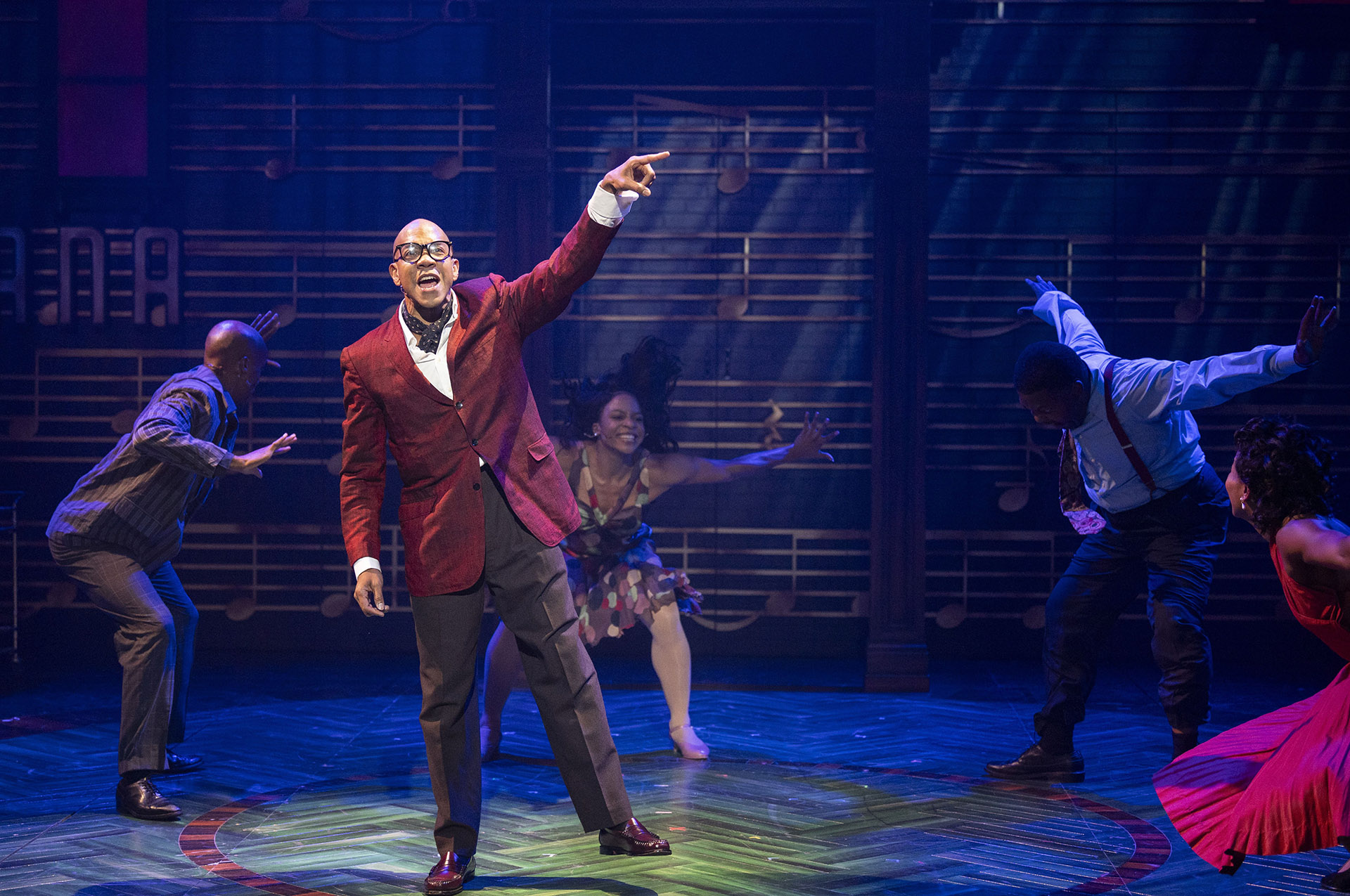
Matt’s Musical Direction
Featuring a score filled with Strayhorn’s best-known works (plus plenty of hidden gems), Billy Strayhorn: Something To Live For gave Whitaker the chance to take a deep dive into the composer’s musical universe — though he didn’t feel the need to improve on perfection. “Billy is one of the greatest composers,” he says. “I’ve been digging into his music and when it came to arranging, everything was pretty much there. [He] had such a great ear for everything. All I did was put in a few of my things in here and there, and that was pretty much it.”
According to Whitaker, it’s significant that Something To Live For debuted in Strayhorn’s Pittsburgh hometown. “The fact that we’re so close to some of the landmarks that have been mentioned [in the show] is fascinating,” he notes. “For example, one of the scenes [takes place] at the Stanley Theater — and that theater is really close to the theater that we’re in.”
Playing a grand piano provided by Yamaha Dealer of the Year Solich Piano, Whitaker led a live jazz group each night during its initial run, expertly accompanying the onstage action. Despite the fact that he’s a seasoned performer, having taken the stage at such hallowed venues as Carnegie Hall and Lincoln Center, taking part in this kind of production is new to Whitaker. “Honestly, it’s really fun working with everyone,” he says. “Everyone is super unique [and] is just really gelling with one another.”
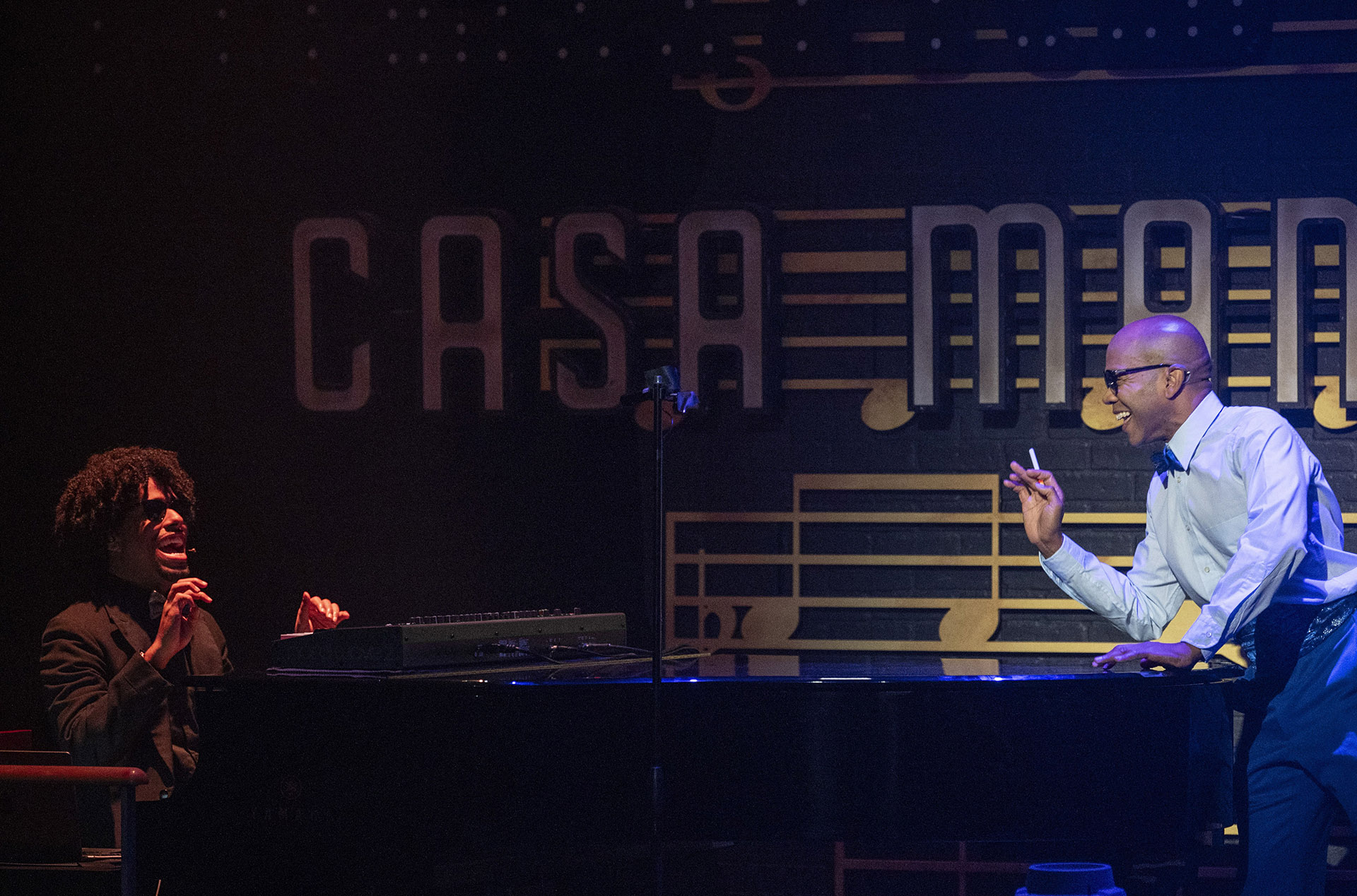
Critics have been impressed so far. “The Billy Strayhorn story may be known to jazz heads, but it’s a fiercely human narrative that deserves to be heard after years in Ellington’s shadows,” wrote Broadway World’s Greg Kerestan. “Hopefully, this show will put Billy Strayhorn back in the narrative … and double hopefully this cast and orchestra will record a cast album so I can hear these performances again!”
“Audiences have been loving it, and everyone is wondering what’s going to be happening next with the show,” Whitaker says. “So hopefully — fingers crossed — we’re going to be going somewhere with it after this run is over. I can’t wait to see what happens next.”
Looking to the Future
In the meantime, Whitaker has his own career to tend to. The musician already has three albums under his belt — Outta the Box (2017), Now Hear This (2019) and Connections (2021). Featuring some of the jazz scene’s biggest names, including Christian McBride and Jon Batiste, each one is a showcase for his burgeoning skills on piano and organ. Whether covering favorites by such jazz piano giants as Thelonious Monk and Ahmad Jamal or offering up a host of terrific originals, Whitaker is clearly a force to be reckoned with. And he’s just getting started.
“I have a project coming up next year called On their Shoulders that’s going to be a tribute to some of my favorite organ heroes,” Whitaker reveals, naming Jimmy Smith, Dr. Lonnie Smith, Charles Earland and Joey DeFrancesco as a few of the master musicians who will be highlighted on the album. “The plan is to hopefully do a series to feature other instruments, like piano and then drums and then other stuff.”
Whitaker’s relationship with Yamaha remains strong. “Yamaha is what I’ve known all my life,” he says. “Back in the day I had a PSR-262— one of those small 61-note keyboards with all the sounds and accompaniment styles. It was so much fun! It was actually my sister’s, but I obviously took that from her because that’s what brothers do,” he says with a laugh. “Over the years, I’ve gotten more into other instruments, [but] the fact that Yamaha makes every instrument under the sun — seriously, it’s amazing.”
@yamahamusicusa @Matthew Whitaker on the GC Series Piano is a whole vibe! #YamahaMusic #YamahaArtist #MatthewWhitaker #YamahaPiano ♬ original sound – Yamaha Music
Accessibility in Music
Whitaker is looking towards the application of technology for the next generation of blind and visually impaired musicians. “[Yamaha] makes it so that [their keyboards are] accessible for blind users to navigate and that’s something I would love to get more involved in,” he enthuses. “Just chatting and figuring out programming, making sure it’s all accessible. I want to help with that more.”
Billy Strayhorn once said, “I believe in the power of music to heal, to uplift, and to inspire change.” It’s a sentiment Whitaker is fully onboard with. “Music is something that can be healing,” he says. “I’m always grateful whenever I get a chance to share my gift with others. Everyone deserves to be happy and positive.”
Photographs by Michael Henninger for Pittsburgh Public Theater, courtesy of Pittsburgh Public Theater.
Check out Matthew Whitaker’s further adventures, including tour dates, videos and more, at https://www.matthewwhitaker.net.











